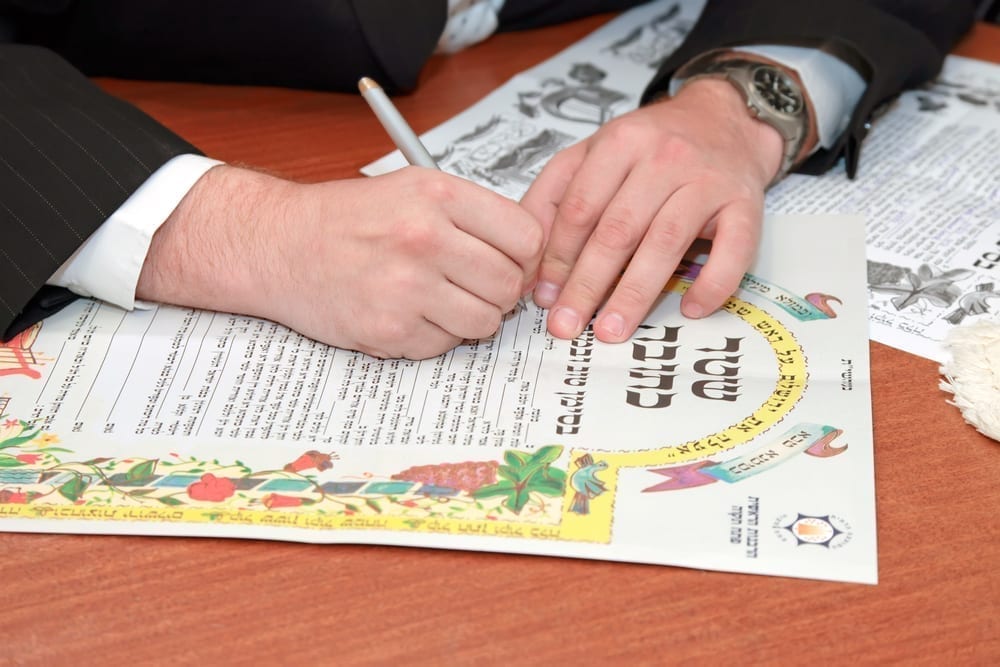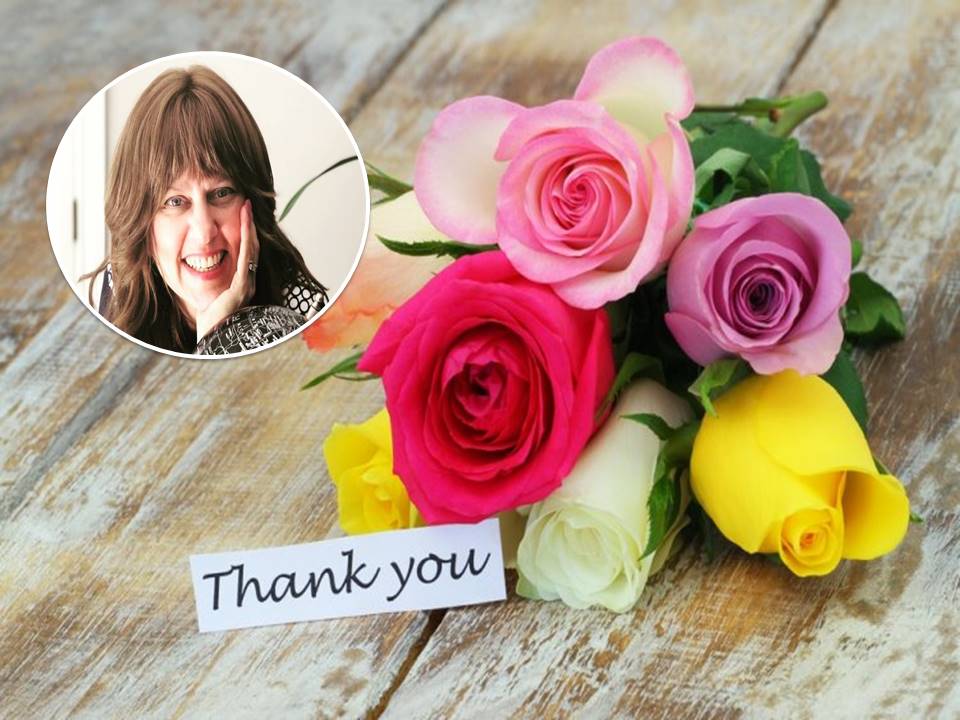I’d been in shidduchim for about three and a half years, and I was jaded by the whole process, to say the least. I’d been on date after disappointing date, and I hadn’t met one person worth going out with more than once or twice. Every single one of them spent the entire night talking about himself and making not-so-subtle inquiries about my father’s business. And if I asked them about their learning, forget it; I might as well have asked them to show me their bank statement. It wasn’t like I was reaching for the moon; I wanted a true masmid, with great middos and a nice personality. Looks were important, but I could be flexible—somewhat. He also needed to be interested in me, and not in the Markowitz* money. (Yes, we’re those Markowitzes, the ones who own the nursing homes.) But after all this time, he hadn’t shown up, and I could see my parents’ anxiety level rising every time I came home with another lackluster report.
After a particularly miserable date, I came home and told my mother I was ready to throw in the towel. “That’s it. I’ve been at this too long. I’m done.” My mother was horrified. “What? Shiffy, you’re only 23!” “So what?” I replied. “I’m old news already, Ma. I’ve been on the market way too long.” “Don’t be dramatic,” my mother said. “You’re almost done with a degree, you have a great teaching job. You have your whole life ahead of you.” “Maybe,” I conceded. “But in shidduch terms, I’m officially an old maid.” My mother sighed. “Have you ever considered the prospect that maybe you’re being too picky?”“Why shouldn’t I be?” I shot back. “This is the person I’m supposed to spend the rest of my life with, who, b’ezras Hashem, will be the father of my children. Why should I settle for anything less than a big masmid?” “You shouldn’t, but you want a perfect tzaddik. That just doesn’t exist.” I snorted. “You’re telling me?” “Listen,” my mother said. “I know you’re frustrated. It’s frustrating for all of us. But let’s give it one more shot before we make any hasty decisions.” I made a face at her. “Just do it for me,” she said. “Please?” Reluctantly, I agreed. That one last shot turned out to be Dovid Grunwald*. Despite the years of disappointment, I couldn’t help but be curious about this boy the shadchan went on and on about. He was 24 and fresh off the plane from Eretz Yisrael, where he’d spent the last four years shteiging away. He’d barely been in the States for a week and he already had a waiting list of prospective shidduchim. “So what does he want with me?” I asked my parents. “Why doesn’t he go out with someone younger?” “The shadchan says he wants a mature girl, someone who knows where she’s heading,” they replied. I had my reservations, but I showed up at the lobby of the Sheraton for our date—five minutes early, as usual. He was already there, which impressed me. Dovid was tall, with green eyes that took in everything.
Despite myself, I was captivated. Within minutes, I knew this boy was different. He knew who he was, what he wanted, and how he planned to get there. He was a yerei Shamayim, serious about learning, but he was also easygoing and personable. He asked me all about myself, and was actually paying attention. Never once did he mention my father or his business. With Dovid, the hours just flew. I floated home to give my anxious parents a glowing report. When the shadchan said Dovid wanted to meet me again, my mother practically danced around the house. After six dates we become engaged. As the wedding date drew closer, my jitters intensified. How did I know that Dovid was really what he claimed to be? What if he wasn’t the talmid chacham I thought he was? What if he was abusive or controlling or lazy? What if he was after my father’s money after all? “These are all normal fears,” my kallah teacher assured me. “But at some point you have to have faith, to trust in Hashem and allow Him to guide you. You met Dovid seven times, and you were very impressed. There were no red flags, no warning signs. What makes you think that he’s hiding something?” “It just feels too good to be true.” “I understand,” she said. “But there’s no need to expect trouble when you can just as easily anticipate a long and beautiful life together.” Her words made sense, and for the most part I kept my fears at bay throughout our beautiful wedding and sheva brachos. Soon enough we were off to Israel to start our married life together.
Dovid and I settled into a quaint little apartment in Yerushalayim. Dovid returned to the kollel, where he’d been learning, and I tried to fill my days with worthwhile projects. I had an advanced degree in special education, but my Hebrew was laughable and I had a lot to learn in terms of Israeli culture. And anyway, with the monthly arrival of my father’s checks, there was really no need for me to look for work. We had more than enough to pay for rent, groceries, and anything else we needed. Soon enough, however, I realized that preparing two daily meals and ironing my husband’s shirts wasn’t nearly enough to keep me busy. Some of my American friends spent their time window-shopping, sightseeing, or going out to eat, but I knew that wouldn’t satisfy me, either. It wasn’t in my nature to while away time; I needed to fill my days doing something purposeful. “Why don’t you come with me to visit the local hospitals?” my friend Tamar suggested after I mentioned, for the hundredth time, that I was going stir-crazy in my apartment. “Hospitals?” I replied with a mock shudder. “Not for me. ” Eventually I agreed to go, albeit reluctantly. I’ve always had an aversion to hospitals; what if I panicked and made a fool of myself? The next day, Tamar and I arrived at Hadassah Mt. Scopus and navigated the maze of corridors to the pediatric cancer ward.
Nothing could have prepared me for the sight of those innocent little children lying pale and listless in oversized cribs, staring off into space. Tamar, who’d been visiting them for a while, was completely at ease. She greeted them all by name, smiled and made funny faces, created impromptu skits and did crafts with some of the children in the recreation room. I hung back and observed, trying to acclimate myself. After our two-hour visit, I was emotionally drained yet strangely content. My boredom and malaise had dissipated; how could I not appreciate the life I had after seeing so much pain and suffering? Tamar invited me to join her the following week, and I jumped at the chance. The week after that she canceled, but by then I felt comfortable enough to go on my own. The children in the cancer ward had stolen my heart—especially Avital, a beautiful eight-year-old girl with wide green eyes. Her treatment had left her completely bald, but she still wore a sunny smile every time I saw her. As soon as I arrived at the hospital, I headed straight for her room. Just the sight of her face infused me with warmth and energy. Dovid was happy to hear that I was doing something worthwhile. “Not that what you’ve been doing until now isn’t worthwhile,” he said, gesturing toward his dinner. “But going to the hospital to visit with sick children? That’s really special.” Over the next few weeks, I watched Avital’s condition worsen. Her face grew pale and she seemed to have lost her spunk. She could barely stay awake for more than a few minutes and appeared to have forgotten who I was. It seemed the cancer was draining the life out of her.
For the rest of the afternoon I visited the other children, returning to Avital shortly before visiting hours ended. She was on her back, her eyes wide open. She smiled softly when she saw me. “You came back?” “I missed you,” I said, sitting down next to her. I stroked her face and sang her songs until her mother came for the evening shift. Then I hurried to catch the bus, arriving home only minutes before Dovid. I threw dinner together as quickly as I could. Dovid murmured a few words of appreciation as I laid the tuna wraps in front of him, but I could tell he wasn’t thrilled. I’ve been spoiling him, I realized. Wasn’t that my job, though? Dovid was supposed to learn with hasmadah while I kept him nourished and his clothes clean. He was certainly keeping his part of the bargain, learning with geshmak, starting the day early with a special seder. In fact, he had asked me last week if I minded if he didn’t come home for lunch at all; lunch was served at the kollel, with a shiur soon afterward that he didn’t want to miss. I was obligated to do my share as well, so I told him it was fine.
Several weeks went by. Dovid was asked to give a chaburah in his night kollel, and he was busier than ever. He left earlier in the morning and came back later in the evening, exhausted after his tiring day. I made sure to be home in time to cook a nourishing dinner, even during the days I was on hospital duty. By now I was visiting Avital and the other children on the ward three times a week. The parents were exhausted from trying to care for their large families while taking shifts at the hospital with their sick children. I was happy to help free up some of their time. As Avital’s condition worsened, I found myself drawn to her bedside, more and more reluctant to part with her. I had come to love this green-eyed little girl. Dovid saw how much our relationship meant to me, and he tried to be forgiving about the occasional dinner of leftovers. He encouraged me to continue seeing Avital as long as I could. By now, she was so frail that she could no longer be left alone.
Late one afternoon I received a phone call from her mother, who was frantic. She needed to take one of her younger children to get stitches, and Avital refused to let her leave. “Could you come to the hospital and take over?” she asked. “Avital doesn’t want anyone but you.” It was a hectic, exhausting vigil, with Avital slipping in and out of consciousness. By the time I returned home, it was already late in the evening, but Dovid was still not home. Along with my relief that I hadn’t kept him waiting and hungry, I felt proud that my husband was such a masmid that he stayed in the beis midrash until late. I hurried to prepare something before he arrived, though he only picked at the food when he got home. I was surprised he didn’t have more of an appetite after a full day but assumed he was just tired. “How’s it going with the kids?” he asked me. “It’s amazing,” I gushed. “I’ve never felt more fulfilled doing anything in my life.” “And what a help you are to those poor parents. My friend’s little sister is in the hospital and he says it’s been tough on the entire family. His parents don’t have a life.” Although I was making these visits lishmah, it felt good to have Dovid validate what I was doing. “Well, I wouldn’t be able to do it without such an understanding husband,” I said. “The mitzvah is half yours. Not bad—you get extra s’char just by sitting and learning!” The next morning, Avital’s mother called to tell me that they had a meeting scheduled with the doctor, so I didn’t need to come.
With my open day stretching ahead of me, I called my friends Mindy and Chavi, both newlyweds from Brooklyn, and invited them out to eat. We decided to try the new sushi place that had opened on Shamgar; it was still early enough that we could get a comfortable seat before the midday rush. As we had predicted, the restaurant was nearly empty. There was a group of giggling seminary girls at one table, and two young kollel men, wearing somber suits and hats, sat at another table in the corner with their backs to us. As we made our way to a booth in the front, Tamar remarked, “Isn’t that Dovid there in the back? He must love this place. He was here last week too.” I caught the reflection of the two men in the mirror on the back wall. I froze. One of them was pale and thin, with a scraggly blond beard. The other one looked exactly like my husband. Impossible. I checked the mirror again. I couldn’t deny it; it was Dovid, my husband, who was supposed to be in kollel. Feeling faint, I quickly excused myself and went to the ladies’ room, where I splashed my face with cold water.
Gasping for breath, I sat down in one of the stalls, trying to recover. I felt nauseated, betrayed. All this time I had thought my husband was a talmid chacham, a masmid who treasured his time in kollel, and that’s why he wasn’t coming home for lunch anymore.There was a knock on the door. “You okay?” asked Mindy. “We were getting worried about you. Should I call Dovid?” I opened the stall and wobbled out. “I’m not feeling well. I need to go home.” Luckily, Dovid and his friend were gone by then. I left my friends to their sushi and took the next bus home. As soon as the door closed behind me, I collapsed on the couch, physically and emotionally drained. I felt like a world-class idiot. How could Dovid do this to me? How could he make me think he was a ben Torah, a serious learning boy, when he was frittering his time away in sushi bars? Come to think of it, I realized, all those times Dovid had called at the last moment to say that he was staying in yeshivah after I had slaved away to prepare a gourmet meal…who knows what he was doing? Overwhelmed with hurt and anger, I could do nothing but lie in bed, sobbing my eyes out. Eventually, I heard a key turn in the lock. Dovid was home. I turned to the wall, unable to face him. “Shiffy?” he asked, coming into the bedroom. “What’s wrong?” I managed a small moan. “Shiffy? Are you okay?” “I’m sick. I think I have fever,” I said. “Can you bring me Tylenol?” Dovid handed me two pills and a cup of water. “Do you need me to stay here? Should I cancel my night-seder chavrusa?” “No, no, you should go,” I assured him.
It took everything in me not to confront him, but something told me to think this through carefully before I said a word. “Act, don’t react,” my father had always told me. I spent a restless night tossing and turning, rehashing the scene at the sushi place. With each passing minute, my fury grew more and more intense. I finally dozed off before dawn and slept deeply for hours. When I awoke, it was nearly noon and Dovid was long gone. He had left a note wishing me a refuah shleimah: “I hope you feel better soon!” On any other day, I would have appreciated his sweet thoughtfulness. But today it just infuriated me. He wasn’t thoughtful; he was a liar. The next few days passed in a daze. I retreated into myself, becoming quiet and morose. I barely spoke to Dovid, replying to him in monosyllables. I wanted more than anything to tell him what I knew, to call him out on his betrayal, but the anger was too overpowering. I didn’t trust myself not to do something rash or say something I could never take back. And if my suspicions were right, I was afraid to face the consequences of bringing it out into the open.
For his part, Dovid was confused about my behavior. He realized pretty quickly that something was very wrong. But he said nothing until I excused myself from dinner two nights in a row. “I know something’s bothering you, Shiffy,” he said. “What are you talking about? Nothing’s bothering me.” Dovid sighed. “Okay, I get it. You don’t want to talk to me about it. But whatever it is, I hope you snap out of it quickly.” Then he got up and stalked out of the room. Just then my cell phone beeped: a new voicemail. I looked at the phone and was horrified. I’d missed four calls from Avital’s mother! I’d been so wrapped up in my dilemma with Dovid that I hadn’t been able to think about anything else. I quickly called her back. “Can you come now?” she asked. “My son is there and he has to get back for night seder.” “I’ll be there within the hour,” I promised. I rushed to get dressed and was out the door ten minutes later.
At the hospital, I rushed up to the pediatric ward and knocked on Avital’s door.There was a middle-aged woman there who introduced herself as Avital’s greataunt, her grandmother’s sister. “I’m here to be with Avital,” I told her. “My name is Shiffy Grunwald.” “Grunwald? Are you related to Dovid Grunwald from the Yeshiva* kollel?” “Of course,” I replied, dumbfounded. “He’s my husband.” A wide smile spread across the woman’s face. “What a small world! I’m so glad I met you. Now I can thank you for everything your husband does!” My mouth fell open.“You can?” “Your husband is mamash a tzaddik,” she said. “He’s been such a support for our son; as you know, he is going through very hard times. It’s mamash hatzolas nefashos.” I had no idea what she was talking about, but she quickly explained. “Those lunches are like a therapy session for him. My son’s matzav is such a challenge to my emunah. To be honest, I haven’t really come here so often because it’s just too hard seeing my little niece suffer. My sister told me about the amazing Shiffy who’d been coming. I had no idea it was Dovid Grunwald’s wife!” She shook her head in wonderment. “It’s unbelievable!” It certainly was. Later, riding home on the bus after spending a few hours with Avital, I was still marveling at the amazing coincidence. But more than that, I was grateful I hadn’t confronted Dovid with my suspicions. It all seemed so ridiculous now that I knew the truth. I couldn’t wait to get home to tell my husband— who, as I’d feared, was not as good as he’d claimed. He was even better. Though his mother assumed that Dovid had told me all the details of her son’s story, Dovid would never betray anyone’s confidence. Even at a price.





